Road to the World’s 50 Best Restaurants 2017: Elena and Juan Mari Arzak interview
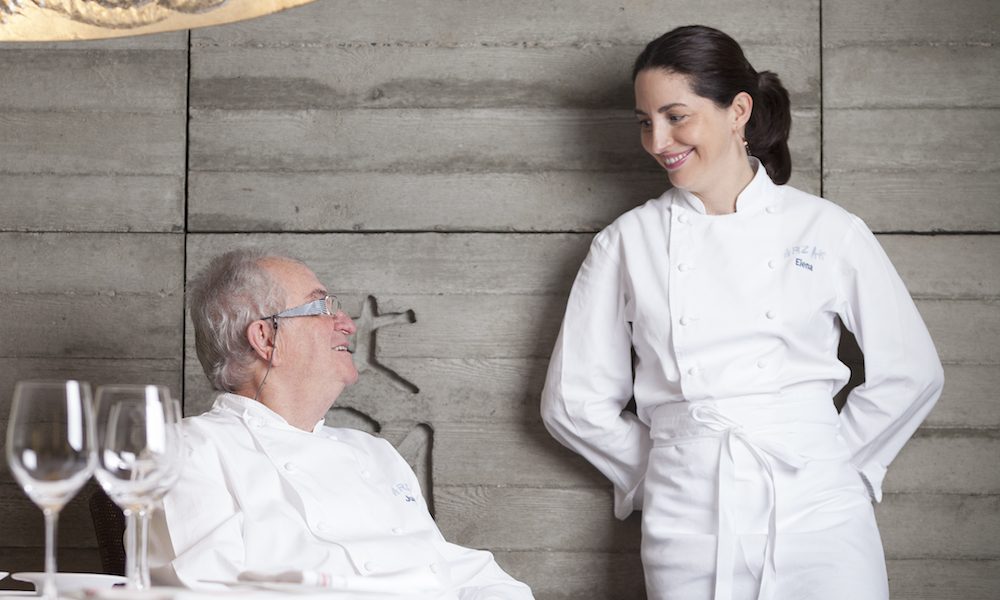
From nouvelle cuisine to traditional Basque recipes, Elena and Juan Mari Arzak offer us a perspective on their careers, their teachings and their approach to local produce. The father-daughter duo discuss with us the past and present history of their restaurant, their international success and the upcoming announcement of the World’s 50 Best Restaurants list.
Hello Elena/Juan Mari, it’s such a pleaure talking with you. Our editor always tells us you are the nicest people to talk to. How would you describe restaurant Arzak to someone who hasn’t been there?
Elena Arzak: This is a family restaurant. It has its own identity, Basque roots and, at the same time, it offers an innovative and modern approach to this type of cuisine.
Juan Mari Arzak: Yes, it’s a family restaurant – creative and Basque, of course.
Spain has seven restaurants in the 50 Best, which is great, and four of them are Basque and very close considering the global nature of the list. What makes Basque cuisine so special?
EA: On one side, this is a mystery. No one knows exactly why. From my viewpoint, though, this is due to two main factors: we are geographically privileged, in a region where we have so much great quality produce, and because Basque people love eating. They celebrate everything around food. Apart from that, the Basque food revolution in the 1970s had a clear impact on the influence Basque cuisine has nowadays all over the world.
JMA: Eating and cooking food is something rooted in the Basque culture and our wide variety of produce is a privilege.
Do you have a close relationship with Andoni, Victor and Eneko?
EA: We are very close. Well, I would say I’m closer to Andoni. My father and I have had a great friendship with him for over 20 years. Andoni worked with us in different restaurants, one of them being Arzak. Anyway, we have a mutual friendship with all of them. That’s a very beautiful thing. We support and admire each other.
Elena you were a child when Juan Mari started his creative revolution. He is not only your father but also the father of modern Spanish cuisine. What memories do you have of the late 1970s and early 1980s?
EA: Yes, you see, I was an 8-to-12-year-old girl when my father started all of that and I have plenty of memories from that time. Bear in mind we also lived very close to the restaurant. I remember my father packing up the house with cookbooks and exotic ingredients, like passion fruit, Chinese oranges and truffles. Cooks would come and go from our house during the day and my father was very committed and excited about what he was doing. During that time my father also wrote a chapter in one of Paul Bocuse’s books.
JMA: In the late 70s I was doing a very modern cuisine. And in 1976, I participated in the first roundtable from Gourmet’s Magazine in Madrid. A group of chefs and I also completed some traineeships with Paul Bocuse during that time. Then, after different experiences and a lot of work, we gathered a group of people to create the Basque cuisine.
EA: Yes he had very committed colleagues, too. Thanks to that, I learnt a lot and I have been captivated by Basque cuisine since then. I even experimented at that age with my first dishes and I particularly remember making a couple of savoury (and not that good) soufflés.
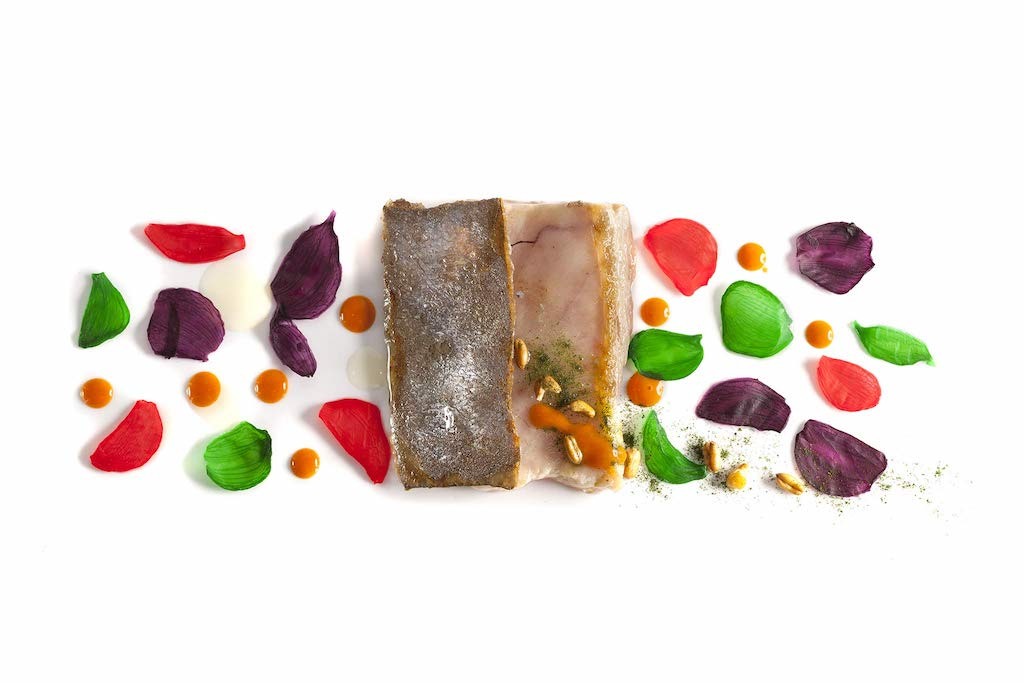
You are yourself one of the most talented chefs in the world – and we are happy to say “and a female chef” for once. Sadly, though, when you look at the 50 Best website it’s depressing to see that yours is the only female face. How long will it take to see half of them female?
EA: I’m going to try to explain this to you from my point of view. I was born in San Sebastián and here women rule. All the women in my family would cook, from my mother to my aunt and grandmother. However, I understand that this doesn’t necessarily happen in other parts of the world. It’s a social concern and we’re going to need some time to see real results, at least another 25 years to see a complete shift. I think there is a clear predisposition from people, though. Most of us want the future to be different. You also need to understand that women here have always been cooks and managers in restaurants, but they would also need to take care of the kids, and men would be the ones facing the public in the meantime.
JMA: I can just speak for myself but in this region women have always been very well considered, but I guess the fact that they decide to create a family, for instance, has an influence in what you just asked me.
Ana Ros won the best female chef award this year. Do you think it’s still necessary to have a separate award?
EA: When I received it I considered that as an award to my career, not to my condition as a woman. However, it’s true that it can be used as a source of inspiration for women without the privileges I have. Perhaps in the future we won’t need this type of recognition, but for now, we experience a clear lack of representation.
JMA: There are other things I believe are more important than that right now. There is still hunger in many parts of the world and that should really be a priority.
Let’s talk about your restaurant. What do you have on the menu today that is particularly exciting for you?
EA: Well, everything that comes from the sea really. Today, for instance, we have carabinero prawns with krill, which reflects the sea’s essence. We have another special dish called Txangurro Encendido, which is a typical Basque crab dish – with a modern twist of course.
JMA: Spring is the best season for seafood. We always play with kilometre-zero produce in that sense. The raw material is always kilometre-zero and for the side dishes we try to be more exotic, but they must fit into the style of Basque cuisine.
Arzak is synonymous with experimentation. There’s a lot of focus on 3D printers for food; do you think the future of fine dining cuisine will feature them?
EA: Arzak’s kitchen adapts itself to society and its changes. We are experimenting every day, and we even keep in mind the psychology factor when we cook or create new dishes. We’ve already tried 3D prints, and they really add to the dish’s presentation. But, in the end everything you add needs to eventually improve the taste and complement the rest of the senses, too.
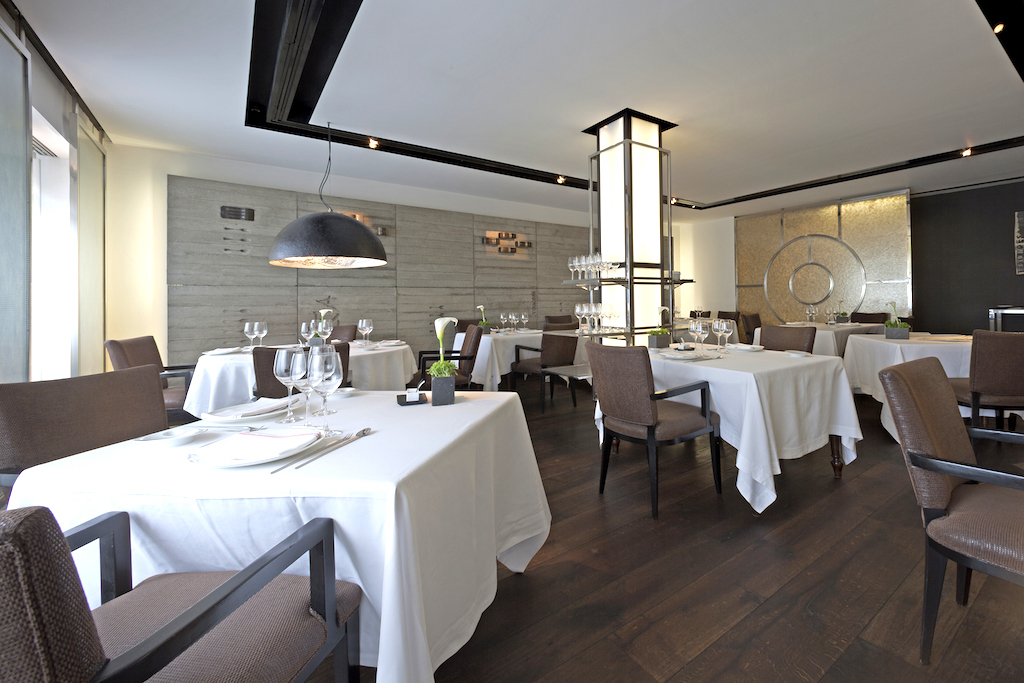
Elena you also worked and trained here in London. Do you miss the city?
EA: People from San Sebastián are really connected with London, we are not too far from it. I went to study in London when I was 19 and you could notice how the gastronomic scene was starting to rise there. The multicultural nature of London was very exciting, and you could see that reflected in the cuisine and its variety too. And because of that mix of cultures you can often find British products mixed with more exotic cuisine. That’s something we enjoy doing in San Sebastián, too, incorporating new elements into more traditional recipes.
You give instructions to Ametsa, a restaurant here. What do you think is the most Arzak-style dish they have on the menu?
EA: The style is really present in every dish they have, but maybe the appetizers are a little bit more ours.
What advice would you give to young chefs?
EA: Well, first you need to have a strong theory base. Then, just be consistent in your job, work hard and listen to other people’s advice every time you can: from colleagues to clients.
Did it take you a long time to become a professional chef? Do you remember any funny episodes that happened during those days?
EA: Up until I was 18 years old I was living in San Sebastián. Then I went to study abroad and spent six years out of Spain. When I was 24 I came back again. I really had a fantastic time studying with great people in France, Italy and other countries around the world.
In just ten days you are going to Melbourne. Have you ever been in Australia? Is there any restaurant in particular that you are excited about?
JMA: Yes, of course I’ve been there. If I had to speak about one restaurant, it would be Tetsuya, which has a great chef who is also a friend of mine.
Let’s go back to the 50 Best list for a moment. Do you have a favourite restaurant in the top positions?
JMA: It’s difficult to say, they are all great. But Andoni and the Rocas are really good. Also, Bottura and Arguinzoniz – very nice cuisine.
EA: Obviously all of them are amazing professionals. Although I would be very excited if Mugaritz, Etxebarri or Can Roca win, of course.
I don’t want to steal any more of your time, but just one last question. Who is going to win on 5th April?
EA: Well, like I’ve told you, if Mugaritz or Can Roca win we would feel like part of the award. They are very dear to us.
JMA: Apart from us you mean? (Laughs) Andoni and Roca, both are excellent chefs. Besides, Andoni has never won first position so it’s his time.
Maria Barrios
Photos: Coconut

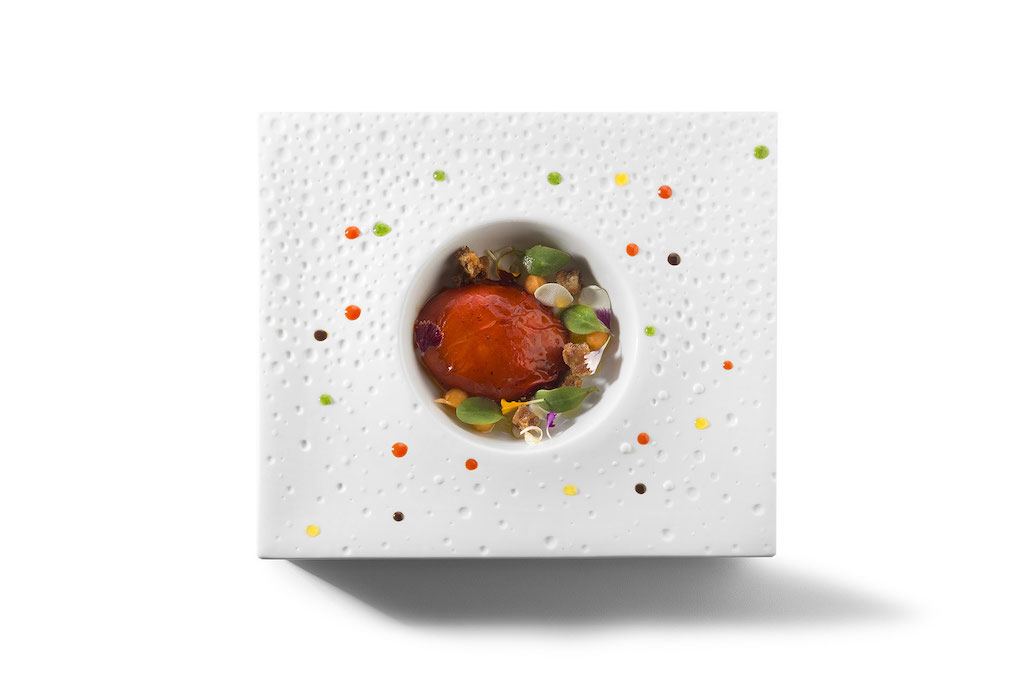
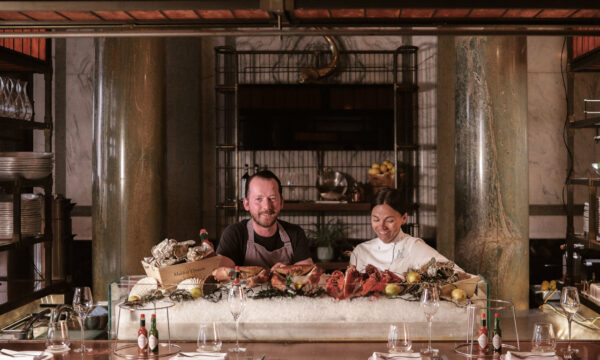
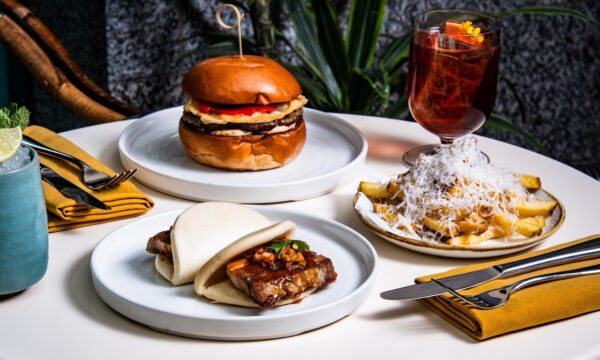
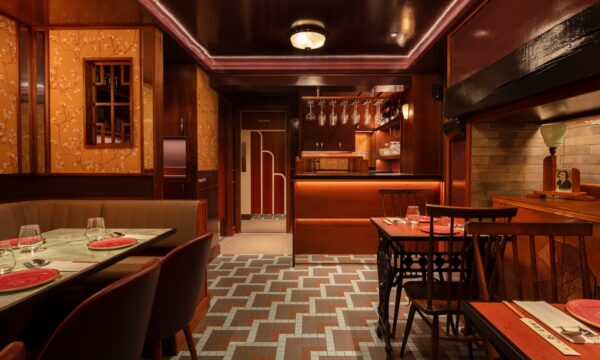
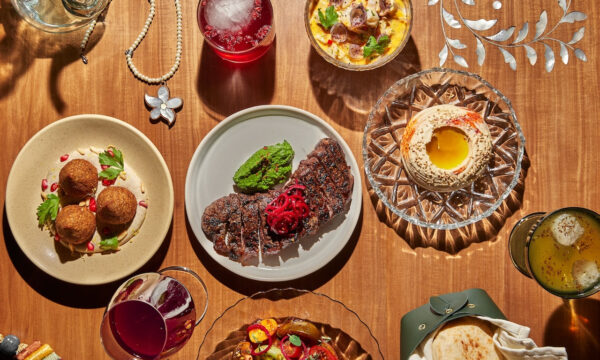
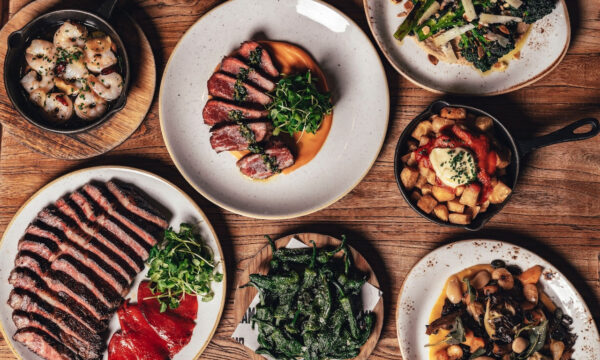
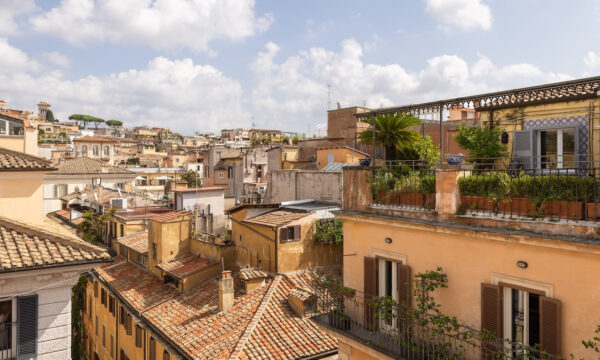
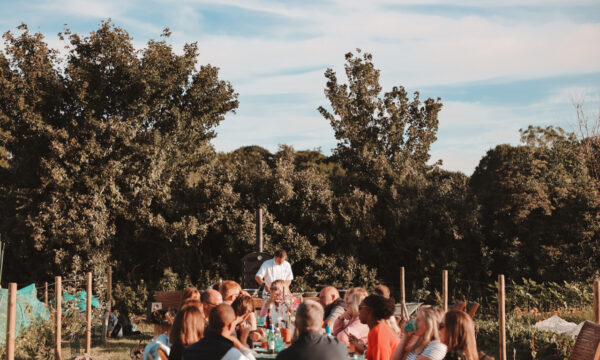
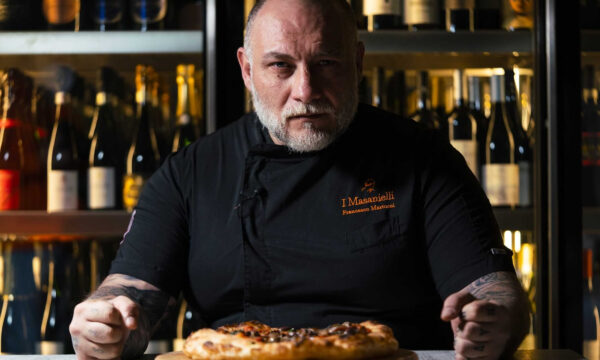
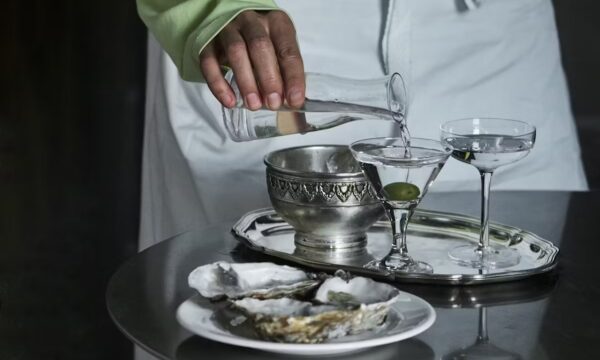
















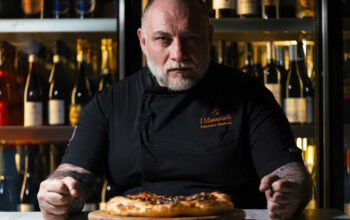




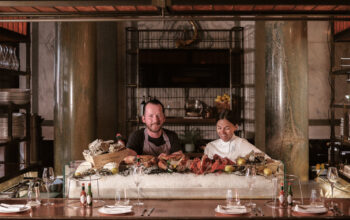
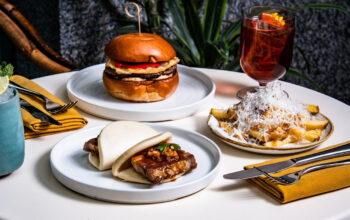

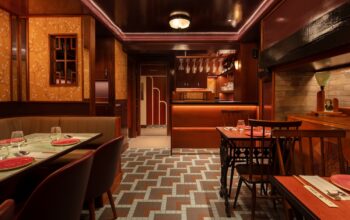





Facebook
Twitter
Instagram
YouTube
RSS